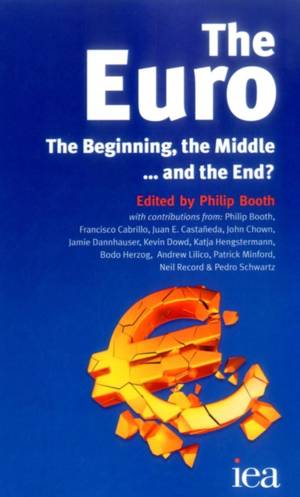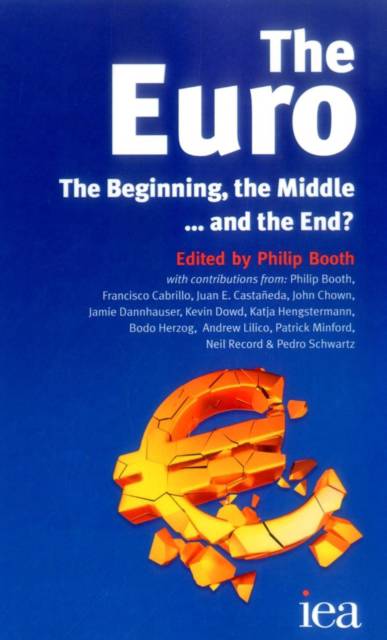
Je cadeautjes zeker op tijd in huis hebben voor de feestdagen? Kom langs in onze winkels en vind het perfecte geschenk!
- Afhalen na 1 uur in een winkel met voorraad
- Gratis thuislevering in België vanaf € 30
- Ruim aanbod met 7 miljoen producten
Je cadeautjes zeker op tijd in huis hebben voor de feestdagen? Kom langs in onze winkels en vind het perfecte geschenk!
- Afhalen na 1 uur in een winkel met voorraad
- Gratis thuislevering in België vanaf € 30
- Ruim aanbod met 7 miljoen producten
Zoeken
The Euro: The Beginning, the Middle . . . and the End?
The Beginning, the Middle & the End ...?
Philip Booth
€ 17,45
+ 34 punten
Omschrijving
At the outset of the euro, there was strong opposition to Britain's participation from most free-market economists. However, economists took more nuanced positions with regards to participation by the majority of current euro zone member states. Indeed, continental free-market economists were generally supportive of the euro, believing it would reduce the tendency towards inflation and encourage economic reform. This book looks again at the debate when the euro was first introduced and traces the sources of its current problems. A group of leading monetary economists then propose radical solutions to resolve the long-running crisis of European Monetary Union which has - in all probability - merely been suppressed by the actions of member governments and of the European Central Bank. The authors are all agreed that we cannot return to the status quo if the current members of the euro zone are to prosper in the long term.
Specificaties
Betrokkenen
- Auteur(s):
- Uitgeverij:
Inhoud
- Aantal bladzijden:
- 209
- Taal:
- Engels
- Reeks:
Eigenschappen
- Productcode (EAN):
- 9780255366809
- Verschijningsdatum:
- 1/07/2013
- Uitvoering:
- Paperback
- Formaat:
- Trade paperback (VS)
- Afmetingen:
- 138 mm x 215 mm
- Gewicht:
- 308 g

Alleen bij Standaard Boekhandel
+ 34 punten op je klantenkaart van Standaard Boekhandel
Beoordelingen
We publiceren alleen reviews die voldoen aan de voorwaarden voor reviews. Bekijk onze voorwaarden voor reviews.









